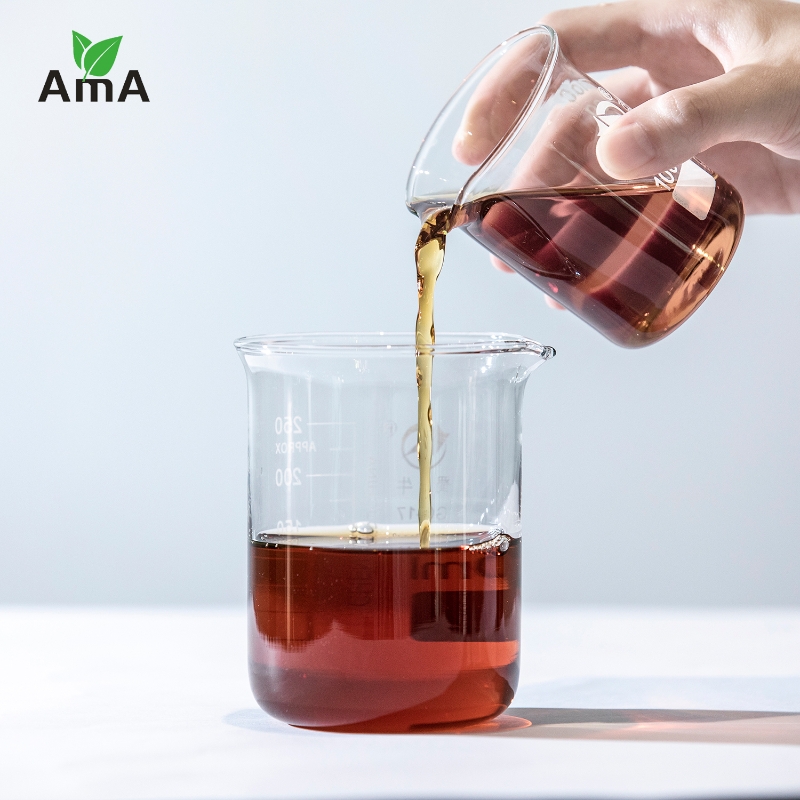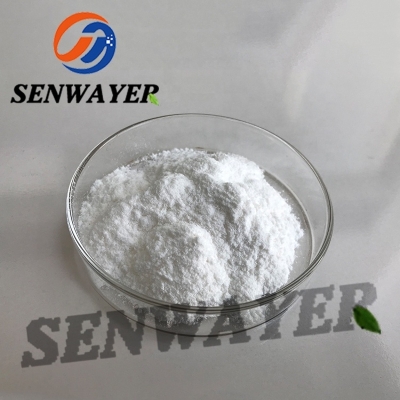-
Categories
-
Pharmaceutical Intermediates
-
Active Pharmaceutical Ingredients
-
Food Additives
- Industrial Coatings
- Agrochemicals
- Dyes and Pigments
- Surfactant
- Flavors and Fragrances
- Chemical Reagents
- Catalyst and Auxiliary
- Natural Products
- Inorganic Chemistry
-
Organic Chemistry
-
Biochemical Engineering
- Analytical Chemistry
- Cosmetic Ingredient
-
Pharmaceutical Intermediates
Promotion
ECHEMI Mall
Wholesale
Weekly Price
Exhibition
News
-
Trade Service
According to statistics, in 2019, 20.
91 billion drugs were used for the digestive system in sample hospitals in my country, a year-on-year increase of 11.
66% and an increase of 9.
As a powerful tool to block the combination of potassium ions and proton pumps to produce a strong and long-lasting inhibitory effect on gastric acid secretion-potassium ion competitive acid blocker (P-CAB) has become the research and development of new drugs for gastrointestinal acid-related diseases One of the important directions.
Digestive system drugs are fighting the 20 billion market, and only 3 models have been approved in the world.
Is potassium ion competitive acid blocker (P-CAB) the next frontier or is it risky?
Market competition
Last year, the amount of drugs used for the digestive system in our sample hospitals was 20.
91 billion.
From the perspective of major treatment sub-categories, proton pump inhibitors contributed the most.
In 2019, sample hospitals purchased 7.
56 billion yuan, accounting for 36.
16%; followed by liver disease drugs, with 4.
395 billion yuan, accounting for 21.
02%; The third is antiemetic drugs, with a purchase amount of 2.
512 billion yuan, accounting for 12.
01%.
For the major participating manufacturers, TOP10 companies accounted for 37.
62%, and the industry concentration was average.
AstraZeneca, CP Tianqing, and Osaikon ranked high in market shares, 6.
65%, 6.
58% and 5.
24% respectively.
01
Proton pump inhibitor
Proton pump inhibitors are an important class of drugs that inhibit gastric acid secretion following H2 receptor blockers, and are currently the first choice for the treatment of acid-related diseases.
The market share of the first-generation proton pump inhibitors pantoprazole, omeprazole, and lansoprazole continued to decline.
The market shares of sample hospitals in 2019 were 21.
97% (2.
55%↓), 21.
48% (0.
07%↓), 19.
83% (2.
7%↓).
Participating manufacturers mainly include AstraZeneca, AstraZeneca, Luoxin Pharmaceutical, Livzon Group, and East China Pharmaceutical.
Figure 1 Analysis of the proportion of market sales in 2019
02
Potassium ion competitive acid blocker
At present, only 3 P-CAB drugs have been approved for marketing in the world, namely: Revaprazan (listed in South Korea), Vonolasan/Wonolazan (listed in Japan and China), and Tegorazan (listed in South Korea) Listed).
The sales of the three drugs in 2019 exceeded US$700 million.
Among them, the most sold one is Vonolasan of Takeda, Japan (approved for listing in Japan in 2015), with sales of 690 million U.
S.
dollars in 2019, a year-on-year increase of 25%.
03
Domestic approval status
In February 2015, Takeda Fumarate Vonola Fumarate Green Tablets (also known as Voronolazan) were launched in Japan for the treatment of acid-related diseases, including reflux esophagitis, gastric ulcer, duodenal ulcer, Use low-dose aspirin or non-steroidal anti-inflammatory drugs to prevent the recurrence of gastric ulcer or duodenal ulcer and the eradication of Helicobacter pylori during treatment.
In March 2018, the Drug Evaluation Center of the National Medical Products Administration officially accepted Takeda's application for the first domestic marketing of voronola fumarate green tablets.
On December 18, 2019, voronola fumarate green tablets were formally approved by the National Medical Products Administration (NMPA) for the treatment of reflux esophagitis (RE), the trade name is Walker, and it is the first approved entry Potassium ion competitive acid blocker (P-CAB) in the Chinese market.
So far, Walker has been approved in China for less than half a year.
During this period, it has submitted two consecutive applications for the listing of new indications.
A series of actions are enough to show that it attaches importance to the Chinese market.
Figure 2 China's application status of Takeda voronola fumarate green tablets
Data source: Yaozhi data
At present, the development of domestic drugs under research based on potassium ion competitive acid blocker (P-CAB) can be roughly divided into two categories: one is based on the development of voronola biosimilar drugs, and the other is based on similar new drugs.
Development.
According to data, there are a total of 25 domestic pharmaceutical companies in the development of generic drugs for Vonolasheng tablets, of which 5 are in clinical trials.
CP Tianqing, Shandong New Times Pharmaceutical, and Lunan New Times have completed their respective simulations.
The human bioequivalence test of pharmaceuticals and voronola fumarate raw tablets; the equivalence test of Hangzhou Huadong Medicine and Shandong Fortune Medicine is in progress; and 18 companies including Hengrui, Hausen, CSPC Zhongqi have already Approved clinically, clinical trials have not yet started.
In terms of new drug development, Luoxin Pharmaceutical reached a cooperation agreement with CJ Health Care in 2015, and obtained P-CAB's development, production and commercialization rights for the new drug LXI-15028 in China; in addition to Luoxin Pharmaceutical, The X842 jointly developed by Terisino and Ciclus pharma AG of Switzerland and the new drug of Korphepin Pharmaceutical Co.
, Ltd.
are currently in phase II clinical trials.
P-CAB target competitiveness
For the competitiveness of potassium ion competitive acid blocker (P-CAB) targets, there are four points:
1.
The target mechanism of P-CAB is clear, and the clinical drug is certain: Potassium ion competitive acid blocker was approved for marketing by China NMPA in 2018.
2.
P-CAB target new drugs have huge market space: At present, proton pump inhibitors have the largest contribution to the digestive system market, accounting for 36.
16%.
If P-CAB targets can "cannibalize" the market share of proton pump inhibitors, the sales space will be considerable .
3.
Good development opportunities and opportunities: There is currently one product on the market, and there are not many competitors for new P-CAB drugs under development, and the expansion of indications and the combination drug program are at the "same starting line".
4.
Technical advantages of P-CAB products: Compared with PPI, it has a longer half-life and uses different mechanisms of action to regulate and control the release of gastric acid.
This novel method provides a good way to relieve symptoms and promote the healing of the inner wall of the hairy mucosa.
P-CAB may become a blockbuster therapy for the treatment of severe esophagitis (Grade C and D) and patients who do not respond well to PPI treatment.
Advantages of P-CAB
Compared with the current gold standard for the treatment of erosive esophagitis-proton pump inhibitor (PPI), P-CAB has the following advantages:
1.
P-CAB is stable in an acid environment and does not need to be made into enteric-coated preparations.
At the same time, it is an active drug and does not require transformation activation.
The pKa value of P-CAB is 9.
3 (about twice that of PPI drugs).
It can quickly accumulate in the secretory tubules of parietal cells in an acidic environment, and the concentration is 100 million times that in plasma.
These pharmacological advantages ensure that P-CAB can be the first dose of full effect, strong and long-lasting acid suppression, and the consumption is not affected by meals, bringing a new treatment experience to patients.
Therefore, taking it is not affected by meals, increasing medication compliance;
2.
The half-life is relatively long, generally up to 8 hours or more, and it is generally sufficient to take the drug once a day; and the research results have confirmed that most PPI drugs BID are difficult to achieve 24h intragastric PH4 HTR (the proportion of pH>4 duration) ≥ 75%, unable to meet the therapeutic needs of mucosal healing;
3.
Judging from the clinical trial effects of Voronolazan fumarate that has been on the market, it has strong acid suppression and significant effects;
4.
Potential development risks
Compared with traditional PPI drugs, the P-CAB target is currently in the exploratory stage of the mechanism and the front end of research and development, which has a certain degree of uncertainty.
1.
For example, the dose range study report of lansoprazole 30mg (27mg OE) and vornorazan (5, 10, 20 or 40mg once daily) showed that the results of the two treatments for patients with Los Angeles grade A/B esophagitis were similar (Non-inferiority).
2.
3.
P-CAB can be regarded as a convenient and effective acid inhibitor with potential advantages, and the target has the potential to develop into a blockbuster product.
However, whether P-CAB drugs are suitable and safe, even for life-long use, remains to be determined.







